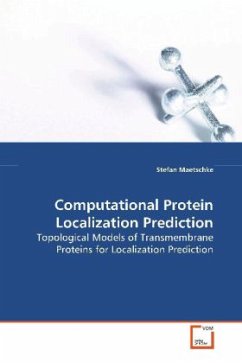
Monotone Prediction Models in Data Mining
Versandkostenfrei!
Versandfertig in 6-10 Tagen
51,99 €
inkl. MwSt.

PAYBACK Punkte
26 °P sammeln!
In many decision problems, it is a priori known thatthe target function should satisfy certainconstraints imposed by, for example, economic theoryor a human-decision maker. One common type is themonotonicity constraint stating that the greater aninput is, the greater the output must be, all otherinputs being equal. Well-known examples includeinvestment decisions, medical diagnosis, selectionand evaluation tasks. However, often the modelsobtained by traditional data mining techniques alonedoes not meet these constraints. Therefore, this bookprovides a thorough study on the incorporation ofmonot...
In many decision problems, it is a priori known that
the target function should satisfy certain
constraints imposed by, for example, economic theory
or a human-decision maker. One common type is the
monotonicity constraint stating that the greater an
input is, the greater the output must be, all other
inputs being equal. Well-known examples include
investment decisions, medical diagnosis, selection
and evaluation tasks. However, often the models
obtained by traditional data mining techniques alone
does not meet these constraints. Therefore, this book
provides a thorough study on the incorporation of
monotonicity constraints into a data mining process
to improve knowledge discovery and facilitate the
decision-making process for end-users by deriving
more accurate and plausible decision models. The main
contributions include a novel procedure to test the
degree of monotonicity of a data set, a greedy
algorithm to transform non-monotone into monotone
data, and extended and novel approaches to build
monotone decision models. The theoretical and
empirical findings should be valuable to graduates,
researchers and practitioners involved in the study
and development of data mining systems.
the target function should satisfy certain
constraints imposed by, for example, economic theory
or a human-decision maker. One common type is the
monotonicity constraint stating that the greater an
input is, the greater the output must be, all other
inputs being equal. Well-known examples include
investment decisions, medical diagnosis, selection
and evaluation tasks. However, often the models
obtained by traditional data mining techniques alone
does not meet these constraints. Therefore, this book
provides a thorough study on the incorporation of
monotonicity constraints into a data mining process
to improve knowledge discovery and facilitate the
decision-making process for end-users by deriving
more accurate and plausible decision models. The main
contributions include a novel procedure to test the
degree of monotonicity of a data set, a greedy
algorithm to transform non-monotone into monotone
data, and extended and novel approaches to build
monotone decision models. The theoretical and
empirical findings should be valuable to graduates,
researchers and practitioners involved in the study
and development of data mining systems.












